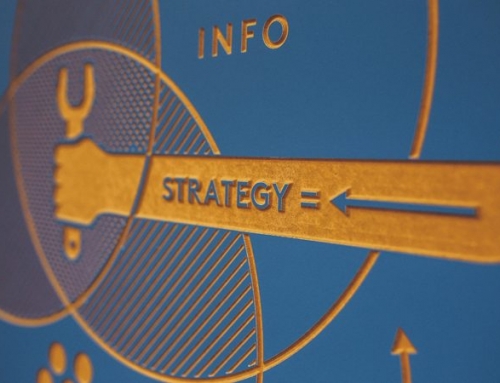Marketing can be all about trends, but you should always think for yourself, too. As content is shared across platforms, the message it sends out tends to amplify, especially if it gets picked up by a large audience. This is a great thing in most cases, but one downside is that false information can spread like wildfire. The “fake news” phenomenon isn’t confined to the world of international politics, it also infects the world of marketing, too. Here some of the most common marketing myths that have somehow found their way into our collective psyche.
You need to brand everything, all the time.
Brand awareness is important and being consistent will generally do you a lot of favours, but there is such a thing as overkill. You don’t really need to have your brand logo on everything and in some cases, overdoing it can ruin the overall impression. Even if you’re logo is super stylish, plastering it over every element of your business isn’t necessary, especially when it most likely displayed on your website, email headers and other media. It’s a fine line, but when you step over it, you go from looking like a professional business, to somebody who is trying way too hard.
There’s No Such Thing As Bad Publicity
This simply isn’t true. It is definitely possible to turn negative attention in to a potential opportunity if you have the right kind of strategy but being famous for the wrong reasons will ultimately come back to bite you. Companies that are given a lot of coverage by the media for their poor quality service or for scandals they’re involved in rarely recover unless they’re already very well established. For small and medium sized businesses, poor publicity can signal the end of the road.
More Contact With Customers Automatically Equals More Sales
Quite simply, it doesn’t. In fact, for older customers and those who prefer the traditional approach of browsing products when they need them, rather than allowing potential suppliers to contact them directly, too much contact can be something of a deterrent. Bombarding people with emails and Facebook messages is irritating, plain and simple. It looks desperate, nobody really pays attention after the second or third time they’ve seen the message and eventually, your campaign just becomes background noise. Never hassle your customers, its disrespectful and it won’t drive your sales effectively.
Campaigns Need to Be Dramatic
Before you roll out your next campaign, ask yourself if you’re being driven by the brief or your own professional vanity. Marketing is there to do a job. To get people to convert. There may be room for shock tactics, innovative technology and vivid imagery, but in many industries, people like to stick with what they’re familiar with. There’s a good reason for this. It works. Office supplies companies or drainage experts probably don’t need to employ enigmatic street sculpture or living art pieces to get more customers, they’re more likely to have success by simply demonstrating they’re good at what they do. Understatement can be every bit as powerful as drama in marketing, the key is to understand the audience before you start assembling the details.
You Must Stand Out from the Crowd
This isn’t always true. It’s not especially glamorous and you probably won’t feel like a dynamic, marketing expert for doing so, but simply looking at the existing competition and creating a similar brand or product will often be far more effective than trying to be deliberately outlandish for its own sake. Some of the most successful and longest running businesses have managed to stay successful, simply because they stick to the “rules” of their industry. Familiarity and blending in with the established norms can allow you to slowly build up a reputation and a customer base over time, rather than trying to do everything all at once.
Your Industry Reputation is More Important Than What Your Customers Think of You
Some companies lose sight of their goals so badly, they end up spending more time trying to establish a reputation amongst their competitors than they do on customer care. Industry reputation does matter, but nowhere near as much as some marketing executives would have you believe. If your business is turning a profit and your customers love you, you are doing almost everything right. Don’t be tempted to change tactics just to fit in or establish a better reputation amongst the other businesses in your field. It’s great to have allies who will share your content and speak highly of you, but unless they’re willing to pay you directly, they should always come second to your customers.
Make Sign Ups and Subscriptions Mandatory
This is one of the quickest ways to lose a whole section of your potential customer base quicker than you can say “spam.” Pushy techniques like this might be becoming more common, especially online, but many customers simply shut down when they feel as if they are being forced into something. Aim to make them want to sign up to your mailing list or to accept notifications from your site, rather than trying to convince them it really is the only way forward. Giving customers a choice shows confidence, not only in the quality of your marketing copy, but also in the standard of the products or services you offer.
Connect With People Emotionally
This can work extremely well for certain types of business, but if you’re a company that works in a particularly emotionless niche such as the building trade, agricultural machinery or medical equipment, it’s probably better to try and sell your products based on their build quality and performance, rather than trying to convince your customers you’re on the same wavelength as them. Simplicity and clarity is generally more effective in these kind of areas because the customer base are very different to a wider public market. There may be room for an element of narrative driven content but sticking to the facts is often far more effective.






